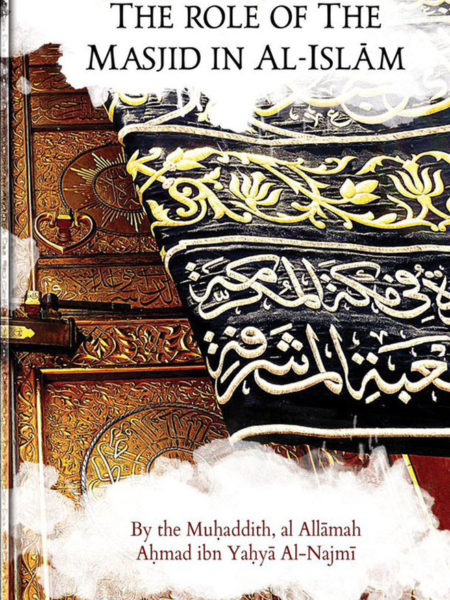-
Prior to 1358 AH, the area spanning southern Saudi Arabia and northern Yemen was steeped in superstitions, ignorance, acts of polytheism, and innovations. But Allah would decree that the Shaykh, the reformer, ‘Abd Allah al-Qar’awi would settle in the region and establish the call of the Prophets and Messengers: the call to tawhid. He instituted schools, built masajid, delivered sermons, taught lessons in towns and villages, and introduced thousands of men, women, and children to the methodology of the Salaf. He was, as Shaykh Rabi’ b. Hadi al-Madkhali said of him, “knowledgeable, pious, ascetic, earnest, patient, and dependent upon [Allah Alone] in his call. He was Salafi in creed, upon the ‘aqidah of Ahl al-Sunnah wa al-Jama’ah.”
-
Forty Hadith Concerning the Fast of Ramadan
Before the reader is a collection of forty authentic Prophetic traditions concerning the fast of Ramadan, with brief commentary from the noble scholars of Islam. This is in keeping with the longstanding tradition of the muhaddithun collecting forty hadiths from the Messenger of Allah on various subjects.
Concerning this tradition, Hafiz al-Nawawi wrote in the introduction to his Forty Hadith, “The religious scholars, may Allah be pleased with them, have composed countles works in this field. The first one I have known to do so was ‘Abd Allah b. al-Mubarak, followed by the rabbani scholar Muhammad b. Aslam al-Tusi, followed by Al-Hasan b. Sufiyan al-Nasa’i, Abu Bakr al-Ajurri, Abu-Bakr Mubammad b. Ibrahim al-Asfahani, al-Daraqutni, al-Hakim, Abu Nu’aym, Abu ‘Abd al-Rahman al-Sulami, Abu Sa’id al-Malini, Abu ‘Uthman al-Sabuni, ‘Abd Allah b. Muhammad al-Ansari, Abu Bakr al-Bayhaqi, and inumerable others, from the earlier and later scholars.”
This treatise covers several important topics: beginning the fast with the sighting of the new moon, making intentions to fast, eating the suhur meal, guarding one’s tongue during the fast, hastening to break the fast, etc.
-
A Glimpse at Humor in the Prophetic Sunnah (2nd Edition) – Compilation & English Translation By Abul Hasan Malik Adam Al-Akhdar
Many believe that Islam prohibits humor, but this is a misconception. In fact, the noble Prophet of Islam used humor wisely: to comfort the grieving, extend warmth and affection to his loved ones, and bring joy to children.
This collection of authentic traditions on the Prophet’s humor is a valuable addition to the Islamic heritage. We pray it helps illuminate the illustrious example of Allah’s Messenger.
-
Cart









